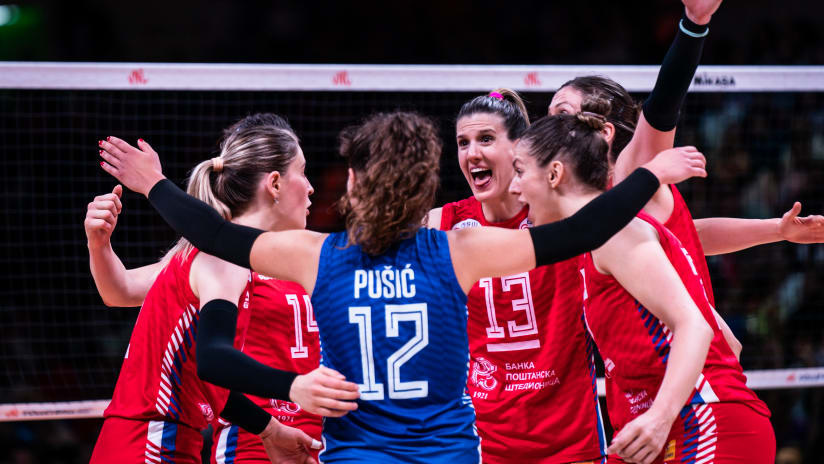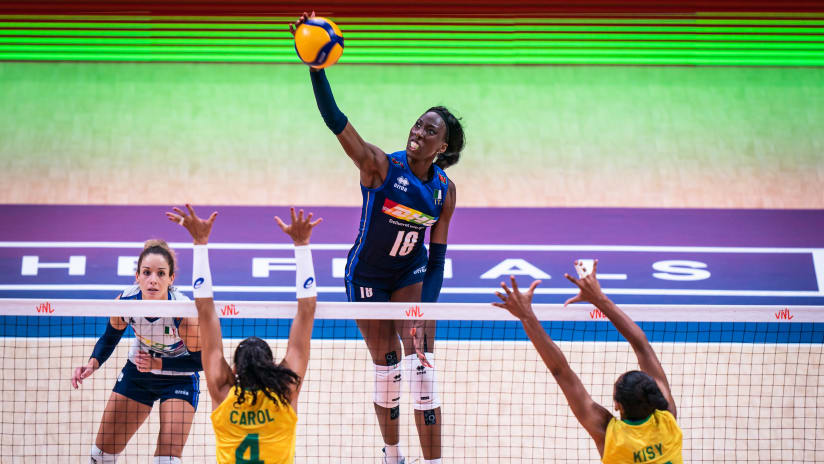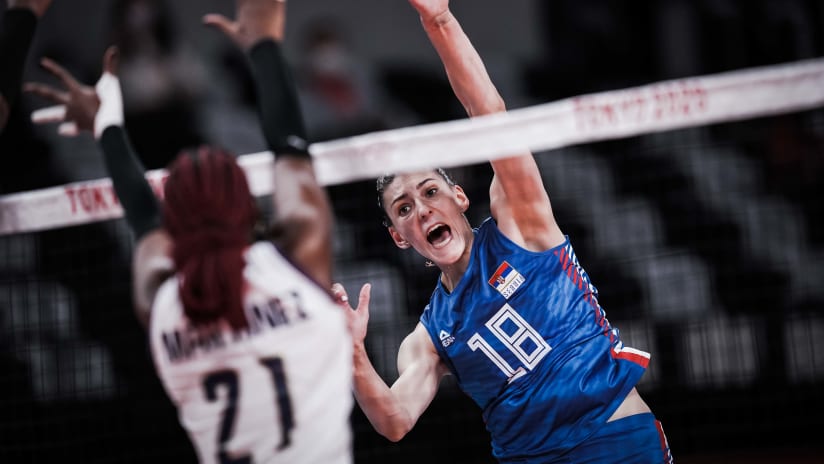International volleyball's most prestigious event opened a new era for the sport, with the top teams in the world gathering every four years to compete for the world title. The inaugural edition of the FIVB Volleyball Women's World Championship took place in 1952, just three years after the first edition of the men’s tournament. And 70 years later, the Netherlands and Poland will hold the 19th edition of the competition from September 23 through October 15, in what will be the climax of the season for the leading teams in the world.
Women's World Championship 2022
Women’s World Championship to celebrate 70 years of history
Flagship competition returns for 19th edition in 2022
Published 07:00, 17 Sept 2022
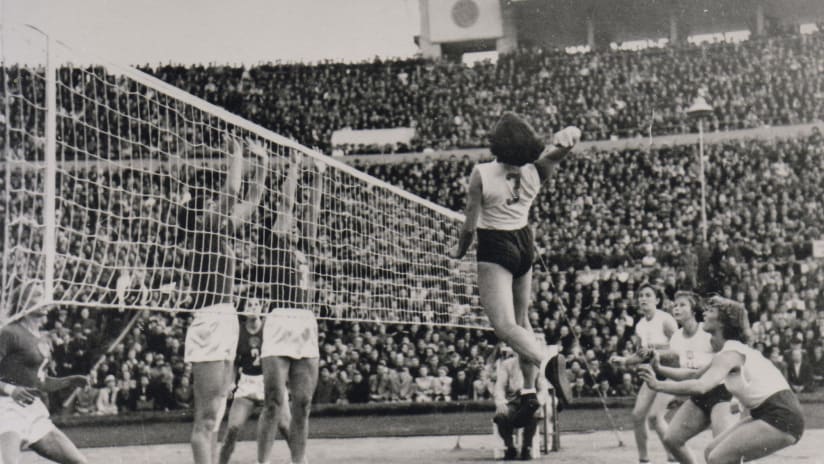
A packed stadium in Moscow for the 1952 World Championship encounter between USSR and Poland
· Watch all FIVB Volleyball Women’s World Championship 2022 matches live on Volleyball TV.
The Beginnings
India joined seven European nations at the first edition of the Women's World Championship held in August 1952 in the Soviet capital, Moscow. The tournament was played in a round-robin format and hosts USSR won all seven of their matches to claim the historic title. Poland won silver and Czechoslovakia bronze.
Three venues in the French capital Paris welcomed the second edition in 1956, with the participation of 17 teams, including the first competitors from the western hemisphere – Brazil and the United States. The World Championship was organised in two pool stages and the Soviets again won their 12 matches to claim the world title. In what was key to the final standings, USSR lost the first two sets of the final against Romania, the only two sets they dropped the entire tournament, but came back to win in five. Romania and Poland joined them on the podium with silver and bronze, respectively.
Four years later, in 1960, Brazil organised the first World Championship outside Europe and the first to be played in multiple host cities. 10 teams participated. The Soviet Union cruised undefeated to another title. Japan took silver to become the first non-European medallists. Czechoslovakia earned bronze.

Japan celebrate their first world title in 1962
Volleyball added to the Olympic calendar
When volleyball was admitted to the family of Olympic sports for the Tokyo 1964 Games, the four-year World Championship cycle was moved forward by two years resulting in the fourth edition taking place in 1962. Four cities in the then-Soviet republics of Latvia, Russia and Ukraine welcomed the 14 participants. Japan handed USSR their first defeat in the history of the World Championships, won their first title, and remained unbeaten in 10 matches played. The Soviet Union and Poland completed the podium.
Men's and women’s World Championships were to be hosted by different organisers in 1966, however Peru withdrew as an organiser and eventually the women's event took place in Tokyo in January 1967. Because of political tensions, communist bloc countries boycotted the tournament and only four teams competed. Hosts Japan earned another gold, USA finished runners-up and the bronze went to South Korea.
16 teams played at the 1970 World Championship in Bulgaria. The Soviets celebrated their fourth title, again without suffering a loss in the tournament. Their long-standing rivals Japan settled for silver, while North Korea snatched bronze.
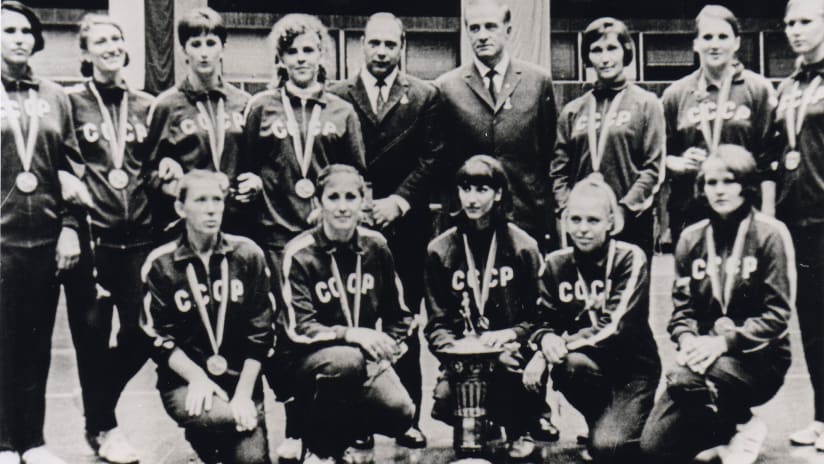
1970 world champions Soviet Union
The 1974 edition in Mexico set a new participation record. North Korea withdrew, but 23 teams competed in the first World Championship organised in North America. Japan and USSR switched places on the podium, with the Asian team triumphant for the third time. South Korea finished third.
While until that point the various stages of the World Championship were played in round-robin format, the first knockout rounds were introduced in 1978, when the Soviet Union hosted the event for the third time (in Belarus, Latvia and Russia). With Tunisia as the first-ever African participant, the tournament wrote history by including teams from all five continental confederations. In the first-ever semifinals, Cuba stunned USSR in four sets and, in the final, they swept Japan to break the 26-year domination of those two nations and rejoice as world champions, leaving them with bronze and silver, respectively.
The 1982 podium was a complete shocker, with both China and hosts Peru, who met in the final, medalling for the first time. Led by Lang Ping, the first athlete to be honoured as a World Championship MVP, China swept Peru to claim their first world title. Even USA’s third place was considered a surprise.
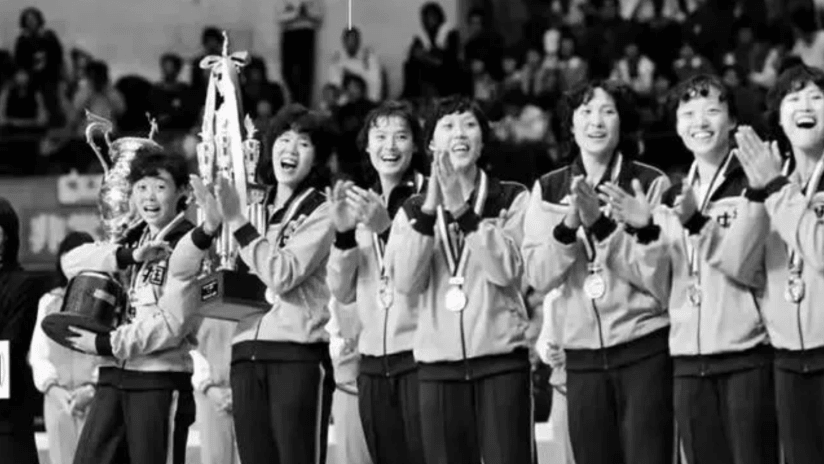
1982 MVP Lang Ping of China and her teammates celebrating as world champions
One Slovak and five Czech venues hosted the 1986 championship in Czechoslovakia. China defended their title. Cuba and Peru completed the podium. The number of participating teams for that and the next three editions was limited to 16. The Soviet Union returned to the throne one last time in 1990 for their fifth title. They defeated hosts China in the final. The bronze went to USA. Cuba reclaimed the crown in 1994, when they swept hosts Brazil in the gold medal match. Russia, the successors of the USSR, took their first World Championship medal by finishing third. Four years later, at Japan 1998, Cuba and Russia retained their positions, leaving China in between with silver.
Introduction of the rally-point system
Germany 2002 was the first World Championship with as many as 24 participating teams and featured the newly-introduced rally-point system with sets to 25. Italy were the surprise winners after a five-set rollercoaster final against USA. Russia took their third consecutive bronze. Reminiscent of their domination during Soviet times, they won back-to-back crowns in 2006 and 2010 in Japan, beating Brazil in five sets in both finals. Serbia and Montenegro, as one country, completed the 2006 podium. Hosts Japan did so in 2010.
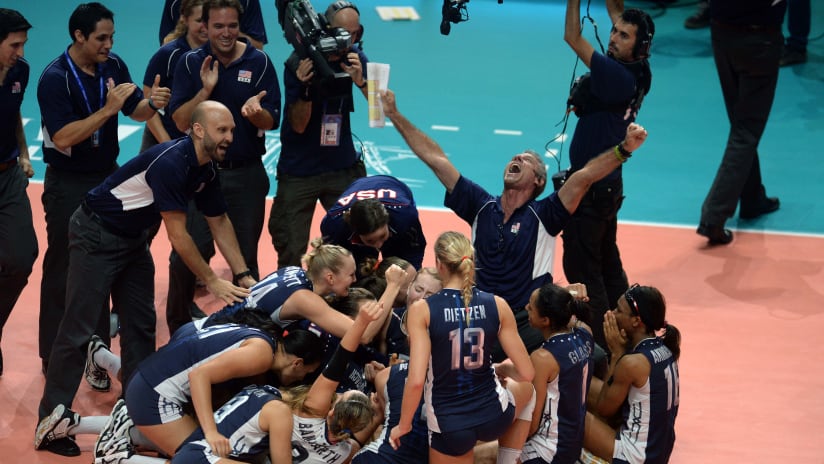
Coached by legendary Karch Kiraly, USA rejoice as first-time world champions in 2014
In 2014, Italy hosted the World Championship for the first time, while the United States triumphed with their first World Championship gold after overcoming China in the final. Brazil completed the podium. For its most recent edition in 2018, the World Championship went back to Japan for the fifth time. In the first-ever all-European final, Serbia outplayed Italy after a spectacular five-set saga in Yokohama to claim their first title. The bronze went to China.
The 2022 World Championship will be the first to be co-hosted by two countries. Both the Netherlands and Poland will welcome the FIVB’s flagship event for the first time.
The all-time World Championship title race is led by Russia with seven trophies, including USSR’s five. Japan and Cuba have won three apiece. China follow with two. USA, Italy and Serbia have won one world title each. Russia (including USSR) also top the chart on the number of medals won with 13, followed by Japan with seven, China with six and USA with five.
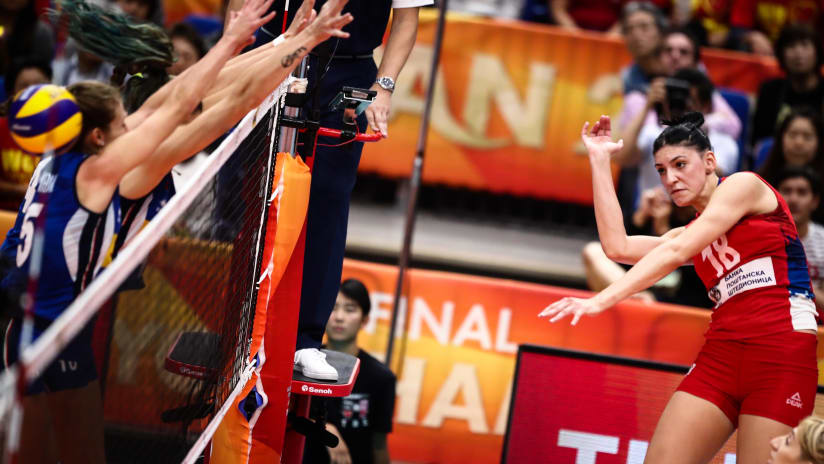
MVP-to-be Tijana Boskovic of Serbia spikes against Italy in the 2018 final


